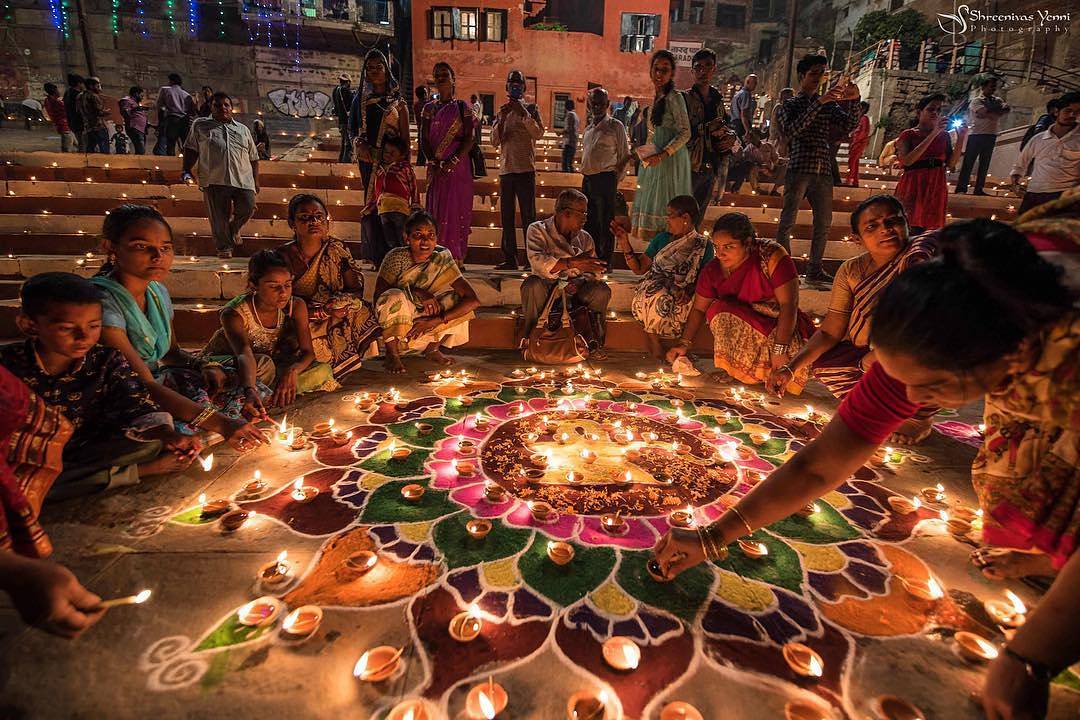

Diwali is a five day festival starts on Dhanteras. On Dhanteras people buy jewellery or utensils and worship to God. The second day is called Naraka Chaturdashi. It marks the death of the demon king “Narakasura”. It is also called Chhoti Diwali or Small Diwali. According to an interesting saying it is believed that those who do not bathe on this day go to the hell. They put flowers and mango leaves on their doors and windows. Firecrackers are burst in order to drive away evil spirits. During Diwali, all the celebrants wear new clothes, share sweets and snacks with family members and friends.
Deepavali or Diwali is an Indian festival of lights. ‘Deepa’ means lamp or light and‘Vali’ means string or row, and Deepavali means rows of lights. It celebrates the victory of good over the evil. Diwali falls on the day of ‘Amavasyaa’ or no moon day, usually in the month of October or November. The date of celebrating Diwali is based on the movement of the moon and falls on different date every year. For Hindus, Diwali is one of the most important festivals of the year and is celebrated in families by performing traditional activities together in their homes. It is one of the biggest festivals of India. Diwali is an official holiday in India, Nepal, Sri Lanka, Myanmar, Mauritius, Guyana, Trinidad & Tobago, Suriname, Malaysia, Singapore and Fiji. Diwali celebrates the return of Lord Rama, along with Sita and Lakshmana, from his 14-year-long exile after defeating the demon-king Ravana.
The third day of Diwali is the main day of the celebrations. People worship Lord Ganesha and Goddess Lakshmi on this day and offer prayers to bless them with wealth and prosperity. Lord Ganesha, the foremost of all Hindu Gods represents good luck and Lakshmi is the Goddess of wealth and prosperity. On this day puja or prayer is done by installing the idols of Lord Ganesha and Goddess Lakshmi. All the members of the family chant the mantras, offer auspicious items like flowers, sweet dishes, silver or gold coins and light diyas in front of the deities and seek their blessings.


The fourth day of Diwali is devoted to Govardhan Puja. Lord Shri Krishna once performed the Govardhan Puja to protect people from heavy rains. Since then it became a tradition to worship Govardhan Parvat (Mountain). The fifth day is called Bhai Dooj. On this day, sisters pray for their brothers to have long and happy lives by performing the Tika ceremony, and brothers give gifts to their sisters.